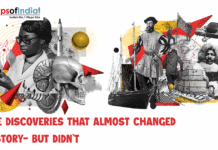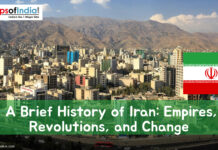In the chaos of World War II, amid the rumble of tanks and the scream of jets, a tremendous voice rose from the airwaves, bringing hope and defiance. This was Azad Hind Radio, the creation of Indian freedom fighter Subhash Chandra Bose, and a powerful tool in the fight against British authority. The shortwave radio service, founded in 1942, crossed geographical boundaries and became a source of inspiration for millions across India and southeast Asia.
History of the Radio: From Berlin to Singapore
Azad Hind Radio was founded in Nazi Germany and initially transmitted from Berlin, the heart of the Third Reich. Despite the controversial alliance, Bose saw it as an opportunity to reach out to Indian soldiers serving in the British Army and reignite their sense of freedom. The station’s strong broadcasts, delivered in many languages, including Hindi, Bengali, and Tamil, struck a chord with these soldiers, encouraging them to defect and fight for a free India. However, the radio’s journey continued. As the fight moved to Southeast Asia, so did Azad Hind Radio. 1943, it established its headquarters in Singapore and began broadcasting from Japanese-occupied territories. This move broadened its reach and allowed Bose to communicate directly with the Indian National Army, his armed force fighting alongside the Japanese against the British.
Features and Importance of Azad Hind Radio
Azad Hind Radio was more than just a propaganda tool. It functioned as a multifaceted platform, providing various content to its broad audience. News bulletins, both factual and strategically selected, kept the public updated on the battle and the development of the independence struggle. Patriotic songs and poems evoked emotions and a sense of unity, while interviews with INA soldiers and ordinary Indians revealed the human side of the war. Bose had an important influence on the radio’s success. His passionate lectures, delivered with his trademark fervor, energized his audience. His renowned slogans, such as “Dilli Chalo!” became rallying points for the freedom movement. He addressed Indians living under British authority, encouraging them to rise and join the struggle. He even spoke directly to the British authorities, exposing their hypocrisy and highlighting the legitimacy of the Indian cause.
Impact and Legacy
Azad Hind Radio’s impact was undeniable. It contributed significantly to promoting awareness of the Indian independence struggle, improving troop and civilian morale, and challenging British narrative control. Although the station’s broadcasting stopped in 1945 with the war’s end, its legacy lives on. It serves as a reminder of the importance of communication during times of struggle and the tenacity of individuals fighting for freedom. However, the radio’s affiliation with the Axis forces is still questioned. While some believe Bose’s decision was pragmatic, motivated by a need for finances and assistance, others condemn his collaboration with authoritarian regimes. Despite its complications, Azad Hind Radio remains an important part of India’s history, demonstrating the creativity and endurance of those who dared to defy the system.




